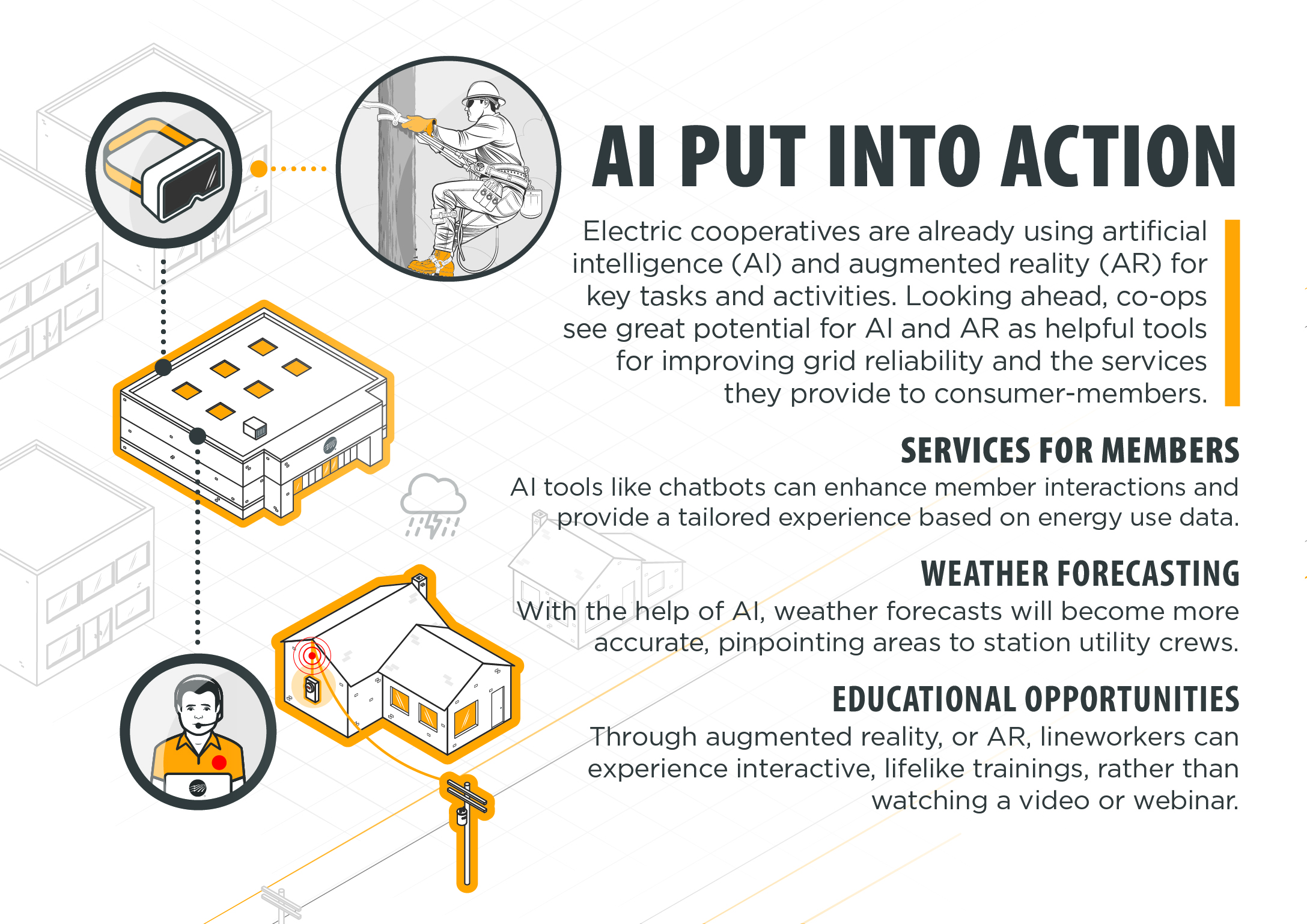Chris Tackmann, General Manager & CEO
Artificial intelligence (AI) is becoming an increasingly popular tool for many industries and even in our daily lives. It has the potential to bring many opportunities–– and a few challenges––to the electric utility sector. But machine learning takes time, and we’re still in the process of determining how AI can really be utilized in our cooperative.
Many electric cooperatives are already exploring emerging technologies like AI, virtual reality (VR) and augmented reality (AR). Most of AI’s current applications are task-specific—like using chatbots to answer common questions from co-op members or analyzing data to better understand members’ needs.
Contrary to what Hollywood would have you believe; AI cannot think for itself. Its abilities depend on how it’s programmed, the quality of its training and the data it receives. AI is essentially about learning from patterns and making decisions based on that input—not about having thoughts or opinions of its own.
Because AI interacts with both internal and external systems/networks, cybersecurity is a top priority. As Oakdale Electric Cooperative (OEC) looks to adopt tools powered by AI and other tech, we will continue to ensure our systems are safe from potential cyber threats.
As we consider emerging AI tools, our focus won’t be so much on the technology itself as on solving real problems. If AI can streamline a process, predict an issue or improve service for our members, it’s worth considering.
As the technology evolves, it could help our staff better manage the local grid or predict storm damage to deploy crews more efficiently.
Another exciting area is AR and VR. Many electric utilities are currently testing AR for training, giving lineworkers a hands-on experience to prepare for dangerous situations before facing them in real life. In the future, smart glasses may help crews instantly identify and troubleshoot equipment in the field.
Ultimately, AI, AR and VR are tools that can help cooperatives like OEC serve our communities better—making energy more reliable, services faster and operations more efficient.

